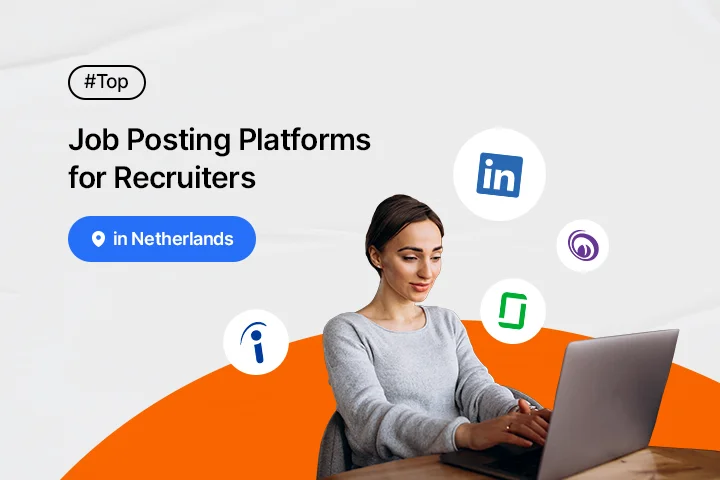AI video interviews are becoming increasingly popular for assessing candidates asynchronously. 85% of recruiters find AI beneficial for saving time, reducing overall workload, finding better-matched candidates, and even removing unconscious bias. Recruiters and hiring managers who want to focus on more strategic tasks use AI throughout the recruitment process, from sourcing, screening, and shortlisting candidates.
But do candidates agree? In this blog, we’ll explain how recruiters can make the AI video interview a better candidate experience and how to use it to streamline the recruitment process.
First, let’s take a look at how this hiring practice will impact the job market at large.
4 Ways AI Video Interviews Impact the Job Market
According to a study by Gartner, AI video interviews can reduce time-to-fill positions by up to 50%, streamlining the recruitment process and enabling companies to identify and hire top talent quickly.
The cost-effectiveness of this technology is evident, as organizations can cut down on expenses associated with traditional in-person interviews. A report from Deloitte highlights that AI-driven recruitment processes, including video interviews, can lead to cost savings of up to 40%.
How can ai voice help in ai video interview process?
Integrating AI voice technology into AI video interviews offers a multitude of advantages for both candidates and hiring teams.
By leveraging AI voice, companies can make their interview processes more inclusive, ensuring that candidates of diverse linguistic backgrounds and abilities can fully participate.
This not only enhances accessibility but also fosters a more equitable and supportive environment for all applicants. Get a variety of AI voices - try their text to speech online for free!
Here are four ways AI video interviews impact the job market.
1. Firstly, it reduces hiring time and cost-to-hire because recruiters can set up automated interviews with pre-determined questions, and candidates can take them at their own pace. It helps companies make decisions quickly and with more insightful data based on AI-driven analytical reports.
2. Additionally, it opens up job opportunities for people in different locations, making the job market more accessible. The technology aims to reduce bias in hiring by focusing on skills rather than personal details, contributing to a fairer process.
3. Candidates also benefit from a more convenient experience as they can complete interviews at their own pace. This shift towards skill-based hiring may change how employers look for suitable candidates.
4. As organizations adopt AI technology, there could be a growing demand for AI and data analytics professionals to fill any existing skill gaps.
However, addressing challenges like bias and privacy concerns is important while ensuring a positive candidate experience. In adapting to these trends, job seekers may need to enhance their virtual communication skills. Overall, the use of AI video interviews reflects a changing landscape in recruitment, bringing both efficiency gains and considerations for fairness and human-centric approaches.
Also read: A guide to AI video interviews
Here are four ways you can improve the candidate experience when conducting AI video interviews.
1) Choose the Right Type of AI Video Interview
Choosing the best format for an AI video interview depends on the job role, company culture, and hiring objective. It depends on what you want to assess in each candidate and how quick you want the hiring process to be to find the best candidate. For example, if you’re looking for a candidate with a good cultural fit, an emotional intelligence assessment would be more suitable to analyze emotional cues in a candidate's response. Whereas, technical roles may require coding challenges or simulations to assess practical skills.
Here are types of AI video interviews to help you understand and choose the best one for your needs.
Also read: Emotional intelligence in the workplace
Conversational HR Chatbots
Conversational HR chatbots in AI video interviews are smart tools that use artificial intelligence to interact with job candidates in a natural conversational style. They assist candidates by providing information about the company and job, guiding them through the interview process, and answering questions. These chatbots can handle tasks such as pre-screening questions, scheduling interviews, and collecting feedback.
One-way Video Interviews
In this format, candidates record their responses to pre-determined questions at a convenient time. Recruiters or hiring managers can later review these recordings, allowing for flexibility in scheduling.
Live Video Interviews
This involves real-time, face-to-face interactions between the candidate and the interviewer. AI may analyse responses and provide insights during the live interview or afterward.
Asynchronous Interviews
Similar to one-way video interviews, asynchronous interviews allow candidates to respond to questions at their own pace. This flexibility is useful for candidates in different time zones or busy schedules.
Simulated Job Tasks
Some AI video interviews include simulated job tasks or scenarios, allowing candidates to demonstrate their skills or problem-solving abilities in a more practical setting.
Personality Assessments
AI analyzes non-verbal cues and facial expressions to assess personality traits, cultural fit, or other qualitative aspects that may not be evident from the resume alone.
Language Proficiency Assessments
AI evaluates language proficiency, including fluency, pronunciation, and vocabulary usage, which is especially relevant for positions requiring strong communication skills.
Code Challenge Assessments
For technical roles, AI video interviews may include coding challenges where candidates write and explain their code, allowing recruiters to assess their programming skills.
Emotional Intelligence Assessments
Analyze emotional cues in a candidate's responses to gauge their emotional intelligence, which is valuable for roles that require empathy and interpersonal skills.
2) Tailor the Interviews to Align with Company Values
This is a strategic move to create a personalized and meaningful candidate experience. Beyond assessing technical skills, the interview platform can be designed to reflect the unique aspects that define the organization. Incorporating company branding, messaging, and values into the interview platform establishes a connection between the candidate and the organization. You will be able to reinforce the employer brand and help candidates gauge their alignment with the company's ethos.
3) Avoid Bias in the Hiring Process
To truly promote inclusivity and diversity, organizations must actively address bias in technology and the hiring process. Combining AI tools with human oversight, continuous monitoring, and transparent practices is essential to ensure that AI video interviews build a diverse and inclusive workforce. Here are some ways to avoid bias in AI video interviews.
1. Firstly, it's crucial to regularly review and audit the algorithms to identify and rectify any biased patterns.
2. When crafting pre-determined questions, recruiters should ensure they are fair, unbiased, and relevant to the job requirements. Implementing blind recruitment techniques, where certain identifying information is temporarily removed during the initial stages of assessment, can help mitigate unconscious biases.
3. Ongoing monitoring and feedback collection from the recruitment process can provide valuable insights into potential biases and areas for improvement.
4. Additionally, recruiters should prioritize transparency with candidates, explaining the use of AI in the process and ensuring they understand how their data is handled.
Read more: What is equity theory?
While AI can assist in hiring, it should complement human judgment rather than replace it entirely. Regular monitoring, transparency, and a commitment to fairness are essential for successful AI-driven recruitment and improving the candidate experience.
4) Keep Transparent Communication Throughout
Prioritize building trust with candidates by clearly describing the interview process and expectations and using automated assessment tools to help candidates navigate the experience confidently. Candidates appreciate knowing the parameters within which they are being evaluated, and when they know what they are getting into, they are more likely to have a positive experience. By removing the anxiety candidates may feel, you let them focus on showcasing their skills and qualifications during the AI video interview.
Embrace AI in hiring, but make it a positive experience for candidates to boost your employer brand and guarantee a successful recruitment process. To learn more about AI Video interviews, book a demo with us!




